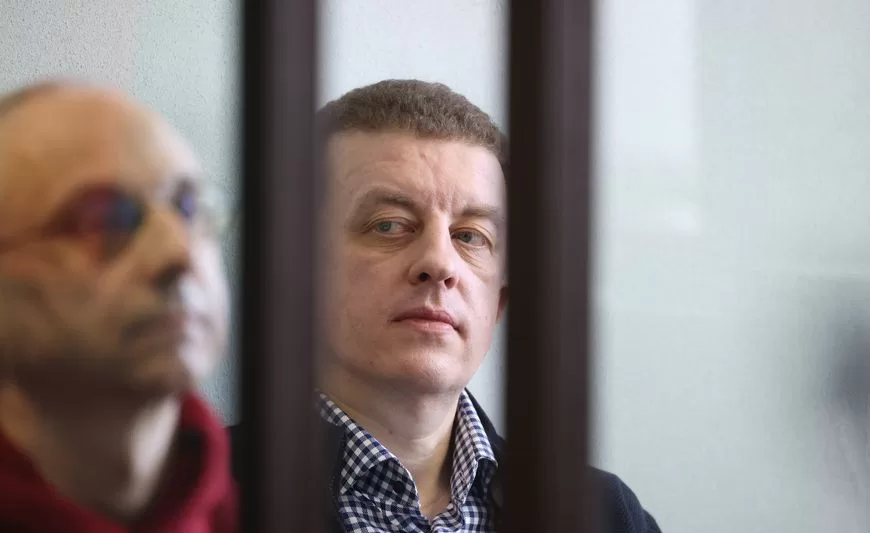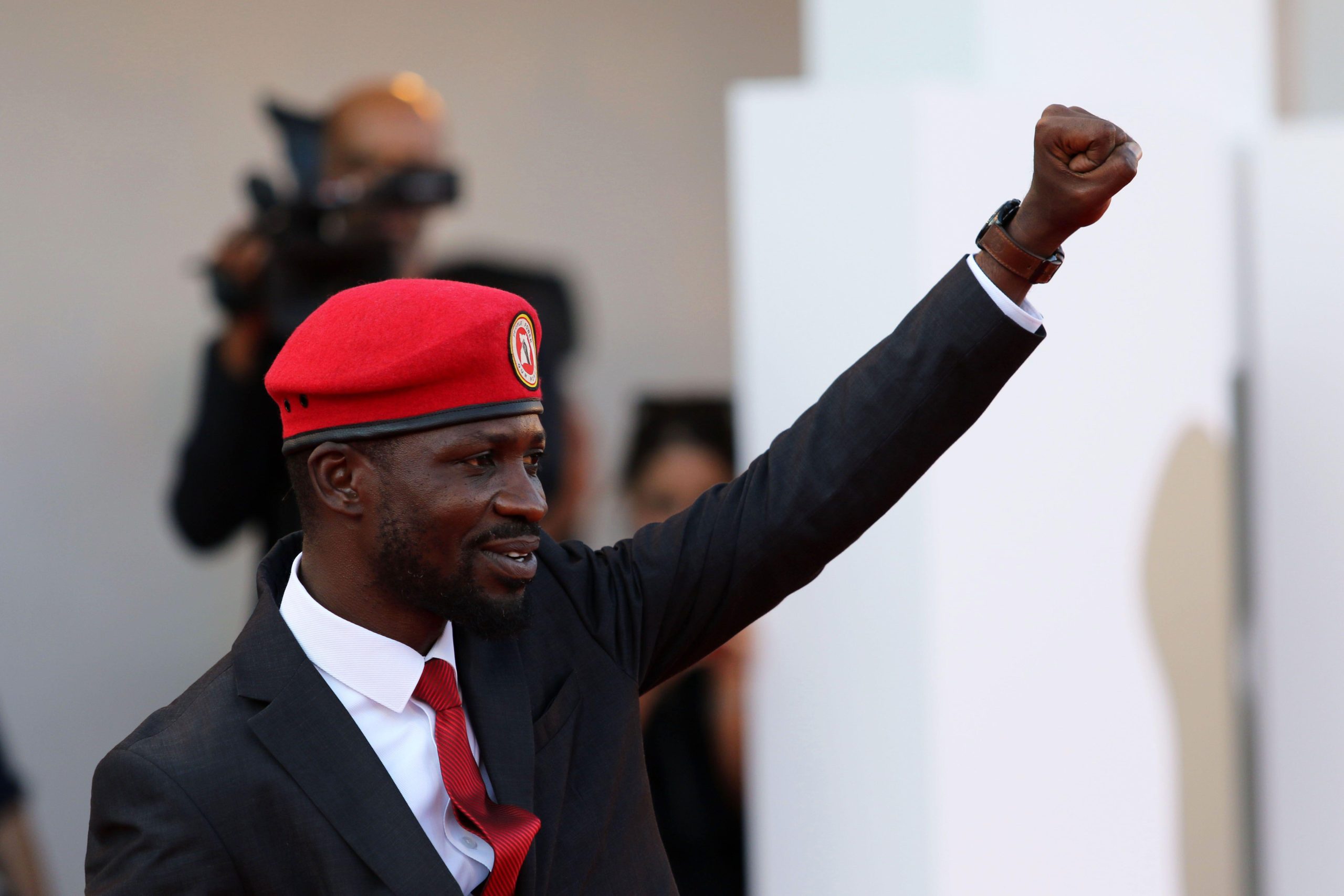In the age of online information, it can feel harder than ever to stay informed. As we get bombarded with news from all angles, important stories can easily pass us by. To help you cut through the noise, every Friday Index publishes a weekly news roundup of some of the key stories covering censorship and free expression. This week, we look at how Israel has targeted Iranian media in bombing strikes, and the state execution of a Saudi journalist.
Bombed live on broadcast: Israel strikes Iranian state media
In the early hours of Friday 13 June, Israel launched strikes against Iran which has since escalated into a larger conflict, with major population centres such as Tehran and Tel Aviv facing missile attacks. Israeli Prime Minister Benjamin Netanyahu claims the initial attack, dubbed Operation Rising Lion, was pre-emptive to prevent Iran from producing a nuclear weapon which Israel believed was imminent – a claim that is not backed up by US intelligence. Beyond nuclear targets, Israeli missiles have targeted another facet of the Iranian state: the media.
On 16 June, the Islamic Republic of Iran Broadcasting’s (IRIB) TV channel was broadcasting live news coverage of the conflict when an explosion rocked the studio, forcing the presenter to flee and the broadcast to cut to pre-recorded bulletins. Israel had bombed the studio live on air in a direct attack on Iranian media. Israeli defence minister Israel Katz described the attack as a strike on the “propaganda and incitement broadcasting authority of the Iranian regime“, while an Israeli military spokesperson alleged that IRIB was aiding the Iranian military “under the cover of civilian assets and infrastructure“. Iranian officials described the attack as a war crime, while the head of IRIB Peyman Jebelli stated that the studio was damaged, but vowed that broadcasting would return. Local media reported that three members of staff were killed in the attack, including a senior news editor.
“High treason” or Twitter?: Saudi journalist executed after social media posts
On 14 June 2025, the Saudi Interior Ministry announced on X that it had carried out the death penalty on Saudi journalist Turki al-Jasser, who stood accused of high treason and terrorism charges, in the first high-profile killing of a Saudi journalist since Jamal Khashoggi. But campaigners close to the case believe that the true reason for al-Jasser’s arrest and execution in 2018 was his posts made on X (then called Twitter).
Al-Jasser reportedly had two accounts: one under his real name, and a second, anonymous account that was critical of the Saudi government, accusing the Saudi royal family of corruption. The Saudi government is thought to have identified al-Jasser as someone involved with attempting to topple the government because of his posts; Saudi Arabia allegedly infiltrated Twitter’s databases to access information about anonymous users in 2014 and 2015, and could have identified Al-Jasser using a similar method. It has been reported that Al-Jasser, who founded the news website Al-Mashhad Al-Saudi (The Saudi Scene), was tortured during his seven-year detention.
Changing views: Reforms to freedom of expression on UK campuses
The university campus is often considered a battleground for free speech, with conflicting ideals constantly in debate and student protests making national news. Universities are often caught between supporting staff or students, and are frequently criticised for giving or denying controversial speakers a platform.
Following some high-profile incidents, universities have asked for clarity. Kathleen Stock, a philosophy professor at the University of Sussex, resigned in 2021 following protests on campus regarding her gender-critical views, for example. The Office for Students (OfS) fined the university £585,000 for the poor handling of her case and failing to uphold free speech.
A set of new OfS guidelines are intended to provide clear advice on what is permitted and what is not. In the guidelines, the OfS has ruled that universities in England will no longer be able to enforce blanket bans on student protests. This follows a wave of pro-Palestine student protests, with encampments appearing on university grounds across the country. Some universities have looked to prohibit such demonstrations, as Cambridge University did when a court ruled to block any further Israel-Palestine protests until the end of July.
The OfS guidelines also address the protection of viewpoints by staff and students that some may find offensive. Arif Ahmed, director for freedom of speech and academic freedom at OfS, stated that students “have to accept that other people will have views that you find uncomfortable” when attending university. The guidelines come into effect in UK universities on 1 August.
No more soap operas: Cambodia bans Thai TV in border dispute
Since a clash at a disputed border area between Cambodia and Thailand claimed the life of a Cambodian soldier on 28 May, the two southeast Asian nations have seen tensions escalate. Each side blamed the other for the skirmish, which has resulted in an increased armed presence at the border and the introduction of retaliatory measures by both governments. With neither side looking to back down, the Cambodian government has taken a further step to sever ties with its neighbour by banning Thai TV and movies from being shown in Cambodia.
The ban also includes a boycott of any Thai internet links; a move that Cambodia’s minister of post and telecommunication Chea Vandeth claimed would cost Thailand hundreds of millions of dollars. Every cinema in the country has been informed that import and screening of Thai films is strictly prohibited as of 13 June, and Thai TV broadcasts – such as Thai soap operas, which are especially popular in Cambodia – must be replaced with Chinese, Korean or Cambodian dramas. Tensions continue to rise, and Cambodia instituted a ban on Thai fruit imports on Tuesday.
Citizen journalism under fire: Government of Jammu and Kashmir has YouTubers and online content creators in their sights
The government of Jammu and Kashmir has issued an order targeting those it deems to be “impersonating journalists”, including content creators on YouTube, Facebook and Instagram. The order restricts speech vaguely defined as “provocative” or “false” content, and content creators reporting on political affairs in the region could be classified as “impersonating a journalist”. The order comes with significant legal threats such as fines, imprisonment and the confiscation of electronic devices, allowing for anyone deemed to be “disrupting public order” to face consequences.
Threats to free speech in Jammu and Kashmir have been prevalent since a deadly terrorist attack in Indian-controlled Kashmir in April claimed 26 lives. Journalist Rakesh Sharma was physically assaulted while covering a protest in Jammu and Kashmir, and following the terrorist attack, the Indian government implemented widespread digital censorship on Pakistani and Muslim content on social media. With the new order, it will be even harder for residents of Jammu and Kashmir to stay informed.






